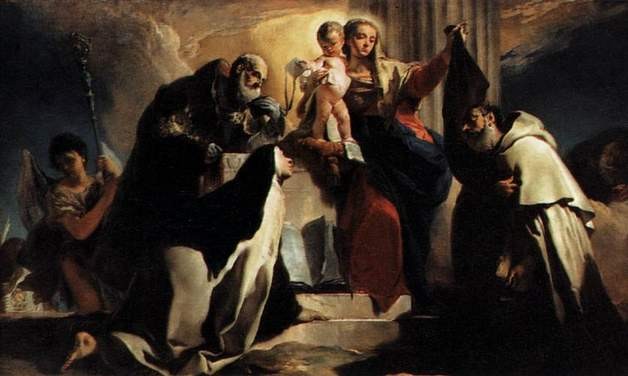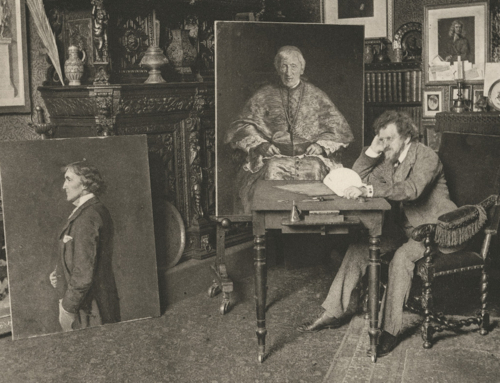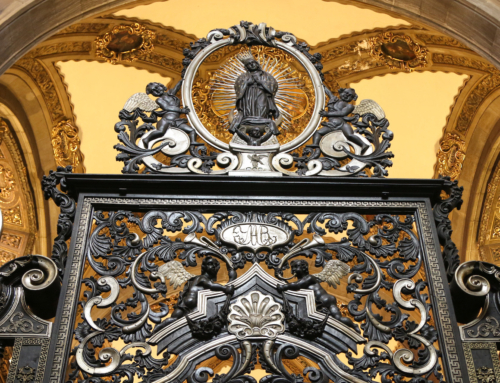Few doctrines are more widely misunderstood than the Catholic teaching on purgatory. One of the most common misconceptions is that this doctrine denies the efficacy of the redemption by requiring that we be punished despite Christ’s death on the cross. We can get a better sense of the true nature of purgatory with a little help from an early nineteenth-century Anglican curate who early in his life didn’t even believe in the doctrine.
Long before he was reconciled with the Catholic Church, Blessed John Henry Newman preached a sermon titled “Holiness Necessary for Future Blessedness” based on Hebrews 12:14, which says, “Strive for peace with all, and for the holiness without which no one will see the Lord.” In the sermon Newman sought to explain why it is that holiness is a precondition for enjoying eternal life. The answer he gave, in a nutshell, is this: “Even supposing a man of unholy life were suffered to enter heaven, he would not be happy there; so that it would be no mercy to permit him to enter.” What does Newman mean?
Many people are under the impression that heaven is a place where you can do whatever you want. But Scripture, Newman points out, paints a different picture: there we will spend eternity worshiping the Lord. Thus, he suggests that heaven is like a church: “For in a place of public worship no language of this world is heard… Here we hear solely and entirely of God.” For the person who rejects God in this world, entering heaven would be more like hell: “In this house of God, he would hear only of that one subject which he cared little or nothing about, and nothing at all of those things which excited his hopes and fears, his sympathies and energies.” If we don’t have a taste for the things of God in this life, we won’t be prepared to enjoy them for all eternity in the next. And so, according to Newman, the purpose of growth in holiness is to prepare ourselves for the joys of heaven—joys that would be hell to those who would enter unprepared.
Because habits take time to develop, it would seem that one cannot prepare himself for heaven overnight. This leads Newman to the difficult question of late-in-life conversions: how can someone who has lived his whole life alienated from God and set in vicious habits hope to enjoy eternal life? Newman’s answer is stark: “It follows at once, even though Scripture did not plainly tell us so, that no one is able to prepare himself for heaven, that is, make himself holy, in a short time; – at least we do not see how it is possible.” In his Anglican days, Newman did not believe in the doctrine of purgatory, and so he could not see any way for a person to enter eternal life by means of a deathbed conversion.
If we follow Newman’s logic, we will see purgatory for what it really is: another aspect of God’s mercy. Purgatory is not a sadistic post-mortem torture chamber, a punishment in addition to Christ’s death on the cross. Rather, purgatory is a final preparation to enjoy life in God’s presence for all eternity. In purgatory we will be completely purged of our self-centered tendencies and refashioned so that we can enter into the never-ending exchange of love that is the inner life of the Blessed Trinity. The process will be painful because ridding ourselves of our sins, even in this life, is painful, but the end result will far outweigh the pain.
Needless to say, we should all strive now with the help of God’s grace to prepare ourselves to enter eternal life. It is true—despite the Anglican Newman’s hesitancy—that someone can have a late-in-life conversion and be received directly into heaven (perhaps, for instance, through the reception of baptism upon one’s deathbed). Nonetheless, for more “typical” cases, if we don’t manage to strip ourselves completely of our vices in this life, we can thank God that in His mercy He will not turn us away. Even the most hardened sinner, provided he repents, can hope to spend eternity joyfully in the presence of the One Who made us for Himself, and in Whom our hearts will ultimately find their rest.
✠
Image: Giovanni Battista Tiepolo, The Madonna of Carmel and the Souls of the Purgatory







